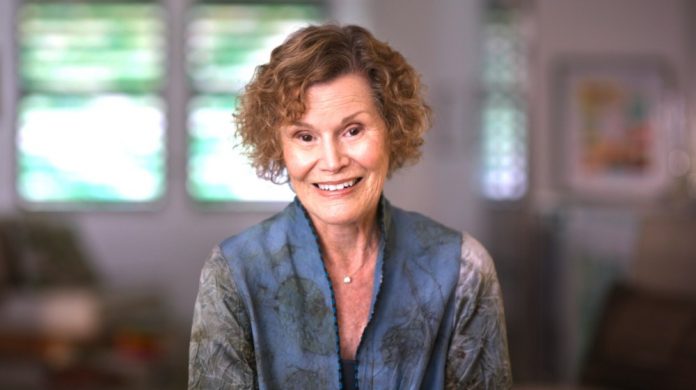Davina Pardo and Leah Wolchok were very persistent in making a documentary about author Judy Blume, and their joint efforts paid off this month with the release of Judy Blume Forever following its premiere earlier this year at the Sundance Film Festival.
The documentary is a long overdue film about the beloved children’s author, who is currently having an exciting month between this film and Kelly Fremon Craig‘s new adaptation of her seminal and beloved book Are You There G-d? It’s Me, Margaret. At the same time, Blume’s books are also in the news due to the rise in book bannings across the nation, as her writing addressed topics that had been considered taboo at the time, and in many instances, are still considered taboo by some people, though there shouldn’t be any stigma around discussing such sensitive subjects.
Above the Line recently spoke with Pardo and Wolchok, who outlined not just their persistence, but how the pandemic delays helped shape the film. It turned out that they not only took the opportunity to reread Blume’s books, but they also watched a number of coming-of-age movies, including Fremon Craig’s feature directorial debut The Edge of Seventeen. As exciting as it would have been to have her discuss Blume in the film, Fremon Craig doesn’t appear in the documentary, but she recently met Pardo and Wolchok after cheering them on from afar, as they did with her film as well.
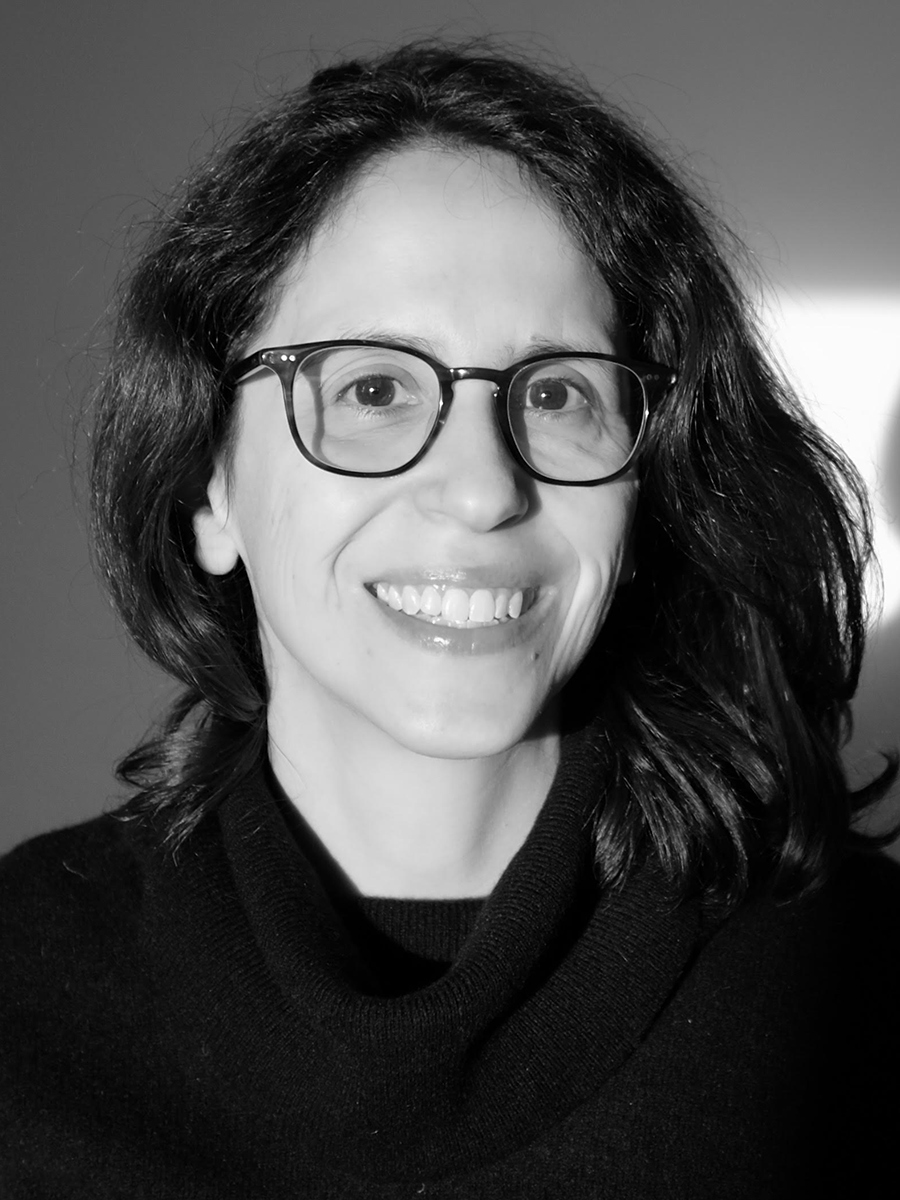
Above the Line: What was the genesis of Judy Blume Forever?
Davina Pardo: Well, about five years ago, I was on a road trip with my kids and we decided to listen to an audiobook to pass the time. I picked Tales of a Fourth Grade Nothing, one of Judy’s early books and she narrates it herself, which I didn’t know. When I hit “play,” her voice filled the car. Even though I had been a huge Judy Blume fan as a kid and read and reread all of her books a million times, I had never thought a lot about who she was, what her story was, [or] how she came to write these characters in these books that meant so much to me and to millions of other readers. It just hit me in this visceral way, hearing her voice and seeing the way my kids reacted to it — they fell in love with it immediately. And suddenly, I needed to know Judy Blume. I wanted to know everything I could about her and I started doing research and then I realized, “we need to make a film.”
ATL: How persistent were you all in getting a “yes” from Judy in order to go forward on the documentary?
Pardo: Very persistent, which is so often the case with these projects. I think it’s rare for someone to just immediately say, “Sure, I want to open up my life to you and your cameras and bare my soul.” It took almost two years for Judy to feel ready. We struck up a correspondence. We got to know each other over email, finally met in person, [and] I started to build a team. Leah got involved. Leah and I decided to direct together, and then Imagine Documentaries got involved. Finally, in February 2020, Judy said, ‘Yes, I’m in.’ And then the whole world shut down so we couldn’t do anything.
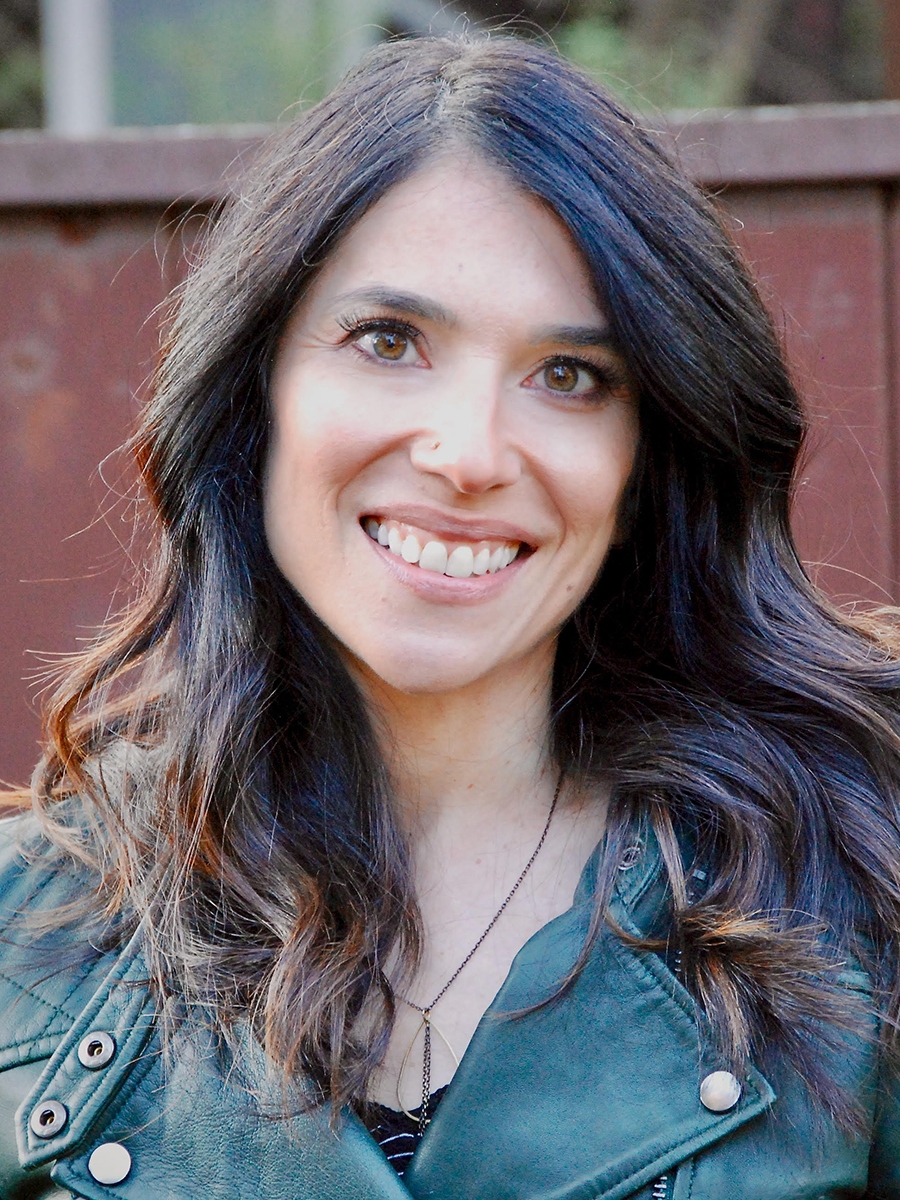
ATL: What were the biggest challenges because of the pandemic?
Leah Wolchok: It’s funny. I think the biggest challenge actually turned out to be the best thing for the film. Because we were stuck inside, we weren’t able to go film her right away. Our instinct was like, “Oh, my gosh, she said ‘yes,’ let’s get a camera [and] go down to Key West,” and we couldn’t for over a year. It allowed us to really slowly reread her books, watch a lot of coming-of-age films, re-immerse ourselves into the world of coming-of-age, and remember what we were like as kids, and also, develop an idea for what the film could be [and] how we wanted her life story and the story of her books to intersect [in] this. Yeah, the long slow development process, I think, ended up making for a more intentional and in the end, a more beautiful film about her.
ATL: What were some of the coming-of-age films you looked at?
Pardo: Well, Eighth Grade is one. I mean, we love everything about that.
Wolchok: We were just talking about this earlier.
Pardo: Kelly Fremon Craig[‘s film].
Wolchok: Oh! Edge of Seventeen, which is directed by Kelly Fremon Craig, who is directing the adaptation of Are You There G-d? It’s Me, Margaret.
Pardo: That film is just so smart, so funny, so well written. We fell in love with it. We were so excited to learn that she was the person who was going to be taking Margaret to the big screen.
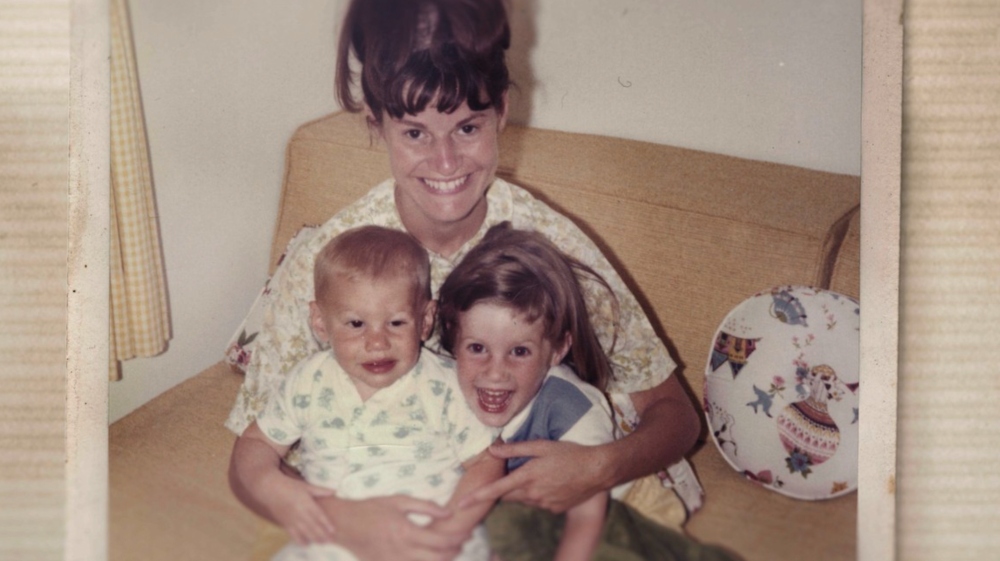
ATL: Speaking of Kelly, did you consider interviewing her for the film?
Wolchok: We’ve always been curious to hear her take on things but we’ve had these parallel projects happening. She was obviously really busy making the film so we were never able to meet her or talk to her until, actually, quite recently. It was so great to connect and realize we’ve been cheering each other on from afar for so long. Once we get through the release of these two films, we’re all going to get together and compare notes.
ATL: It must be fun to have your film and her film opening on back-to-back weekends.
Pardo: Yeah, they are. It’s a great double-feature even if that’s separated by seven days — getting to know Judy more through Judy Blume Forever, really appreciating the deep impact she’s had on her readers, and then going back in time in this really loyal and beautiful cinematic adaptation of her seminal work, Are You There G-d? It’s Me, Margaret. I think you’ll appreciate Are You There G-d? It’s Me, Margaret in a different way knowing everything that it took to get Judy to that point of opening herself up as Margaret when she was writing that book.
ATL: How did you decide on which Judy Blume readers to include in the film?
Pardo: We always knew that we wanted to speak to authors writing for kids today, whose work is now being challenged. People like Jason Reynolds, Alex Gino, and Jacqueline Woodson were on our dream list of interviewees from the very beginning. We were so glad we had a chance to talk to them, and we also wanted to talk to creators — people who are making TV or involved in production and who are telling stories, mostly about women and girls, pushing the form, taking the themes that Judy addressed in her books and taking them to another level — [those] who were inspired by her and whose work reflects that.
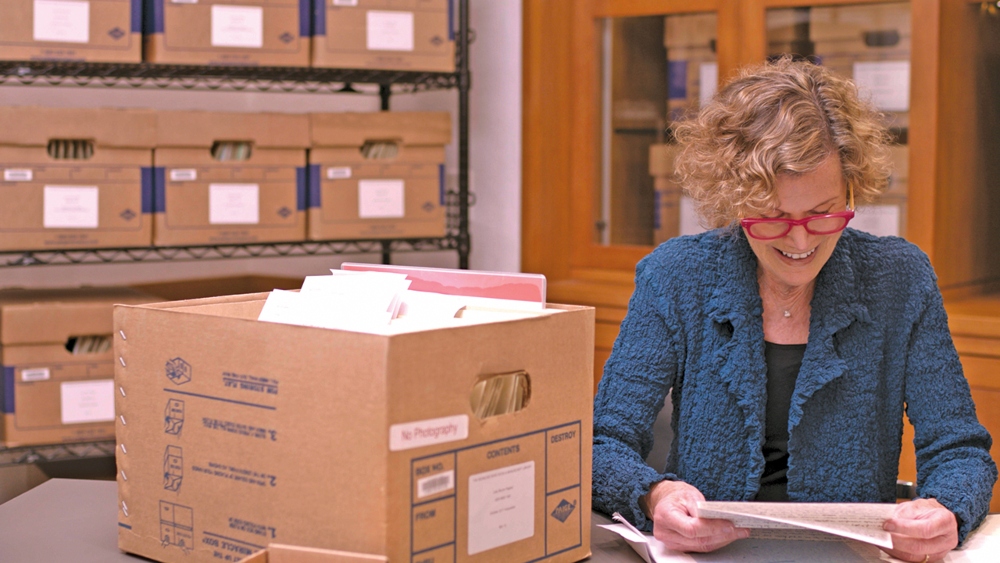
ATL: As far as the letter writers go, I was not expecting Lorrie Kim to just keep coming up again and again.
Pardo: We are so grateful that Judy introduced us to Lorrie Kim and Karen Chilstrom because I think getting to know those two women has been one of the most extraordinary parts of working on this documentary and the most unexpected parts because we were so lucky to be able to spend so much time with Judy. But hearing Karen and Lorrie’s stories and seeing their letters and seeing how Judy impacted who they became as adults and everything throughout their lives and the time they were kids through adolescence through college — it really shows the deep connection that Judy has with her readers and she’s been like a fairy godmother to so many kids.
ATL: I can’t even imagine a big-name author showing up to a graduation.
Wolchok: It’s such a great story.
ATL: How exciting was it to premiere the film during Sundance?
Wolchok: It was incredible. I mean, especially coming out of the pandemic. When we were making this film, we had no idea if we would ever watch a movie in a theater again, let alone our movie, so it was a really emotional day. Seeing the way people responded to the film — people have so much love and such deep emotion [for] Judy. We’re just feeling that love reflected back at us. We had people coming up to us after the movie in tears, people coming and saying like, ‘I didn’t know anything about Judy Blume. My wife dragged me to see this movie, and I fucking…’ — am I allowed to swear? — … ‘fucking loved it.’
Pardo: It was really touching. It was really exciting. I’m just thrilled and honored to be at Sundance with this film.
ATL: The first Sundance where it’s actually back-back, like, in-person!
Pardo: Exactly!
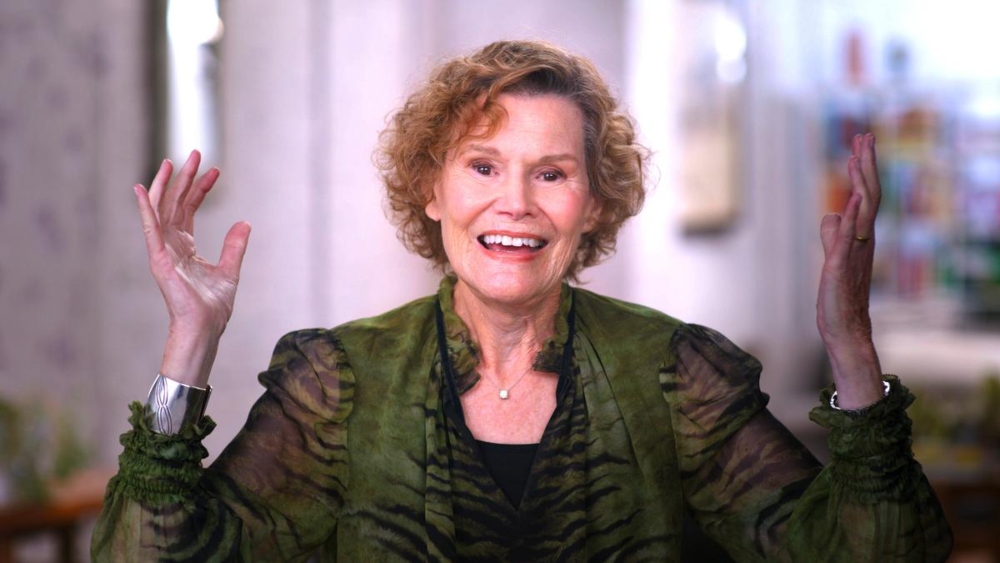
ATL: What do you hope people take away from watching the film?
Pardo: I think one of the things we’re hoping that people take away from watching Judy Blume Forever is how dire the situation has become with book banning in the U.S. I don’t think we ever expected and we are outraged by the extreme level to which parents, conservative activists, legislators, and even governors have taken this idea of controlling what kids think and what kids feel by pulling books off the shelves in their schools and in their libraries. It’s outrageous. We’re infuriated and we want people to realize that they should fight back against book banning and against censorship.
The National Coalition against Censorship, PEN America, the American Library Association — there are three great organizations [that] are really working to push back against all of the challenges. I think while Judy’s books are still being challenged today, the difference in book banning today versus the ’80s, when Judy’s books were being challenged, is that the books that are being challenged today are books about kids who are Black and Brown, kids who are trans or queer, kids whose identities have not been reflected in stories until recently, and those stories need to be told. Those kids need to be able to see themselves reflected in a story. Sorry, I feel like going in circles a little bit, but I think you know what I’m saying. Yeah, I think you got it.
ATL: Yeah. As a transgender American, I’ve never been as scared as I am right now.
Pardo: Yeah.
Wolchok: Yeah. It’s really frightening and books can really help or save a kid.
ATL: Yeah. I would have been out a lot sooner if we had that education and awareness in the ’90s instead of waiting all the way until 2015 when we had the trans tipping point.
Pardo: Right.
Wolchok: Right.
Pardo: I’m kind of curious when the first time was that you felt like you read a character in a book that reflected back to you what you were experiencing.
Wolchok: Probably not when you were a kid, right? They probably weren’t out there, right?
ATL: No, definitely not when I was a kid. I read a lot more memoirs and biographies rather than fiction so there wasn’t a lot on that front.
Wolchok: There are so many great books, so many amazing authors writing about their experience that trans and queer kids can find themselves in and to think that those books are being removed from libraries or that communities would rather actually defund a library than allow those books to be on the shelves — they are so afraid of those books that they would rather just shut down the library. Those are actual conversations happening in this country right now. It just makes my blood boil.
Judy Blume Forever is now streaming worldwide on Prime Video.


